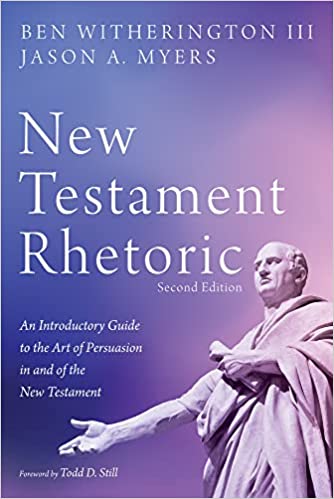‘IN CHRIST’—PAUL’S PREFERRED LANGUAGE FOR CHRISTIANS AND THE CHRISTIAN COMMUNITY
The phrase. ‘in Christ’ or ‘in Him’ (ἐν αὐτῷ) used interchangeably occurs some 39 time in the NT mostly in Paul’s letters, 11 examples of which are found in the opening 202 word sentence in Ephesians 1. Paul does not use the language we find in Acts, namely the term Χριστιανούς– which means a partisan of Christ, or belonging to Christ, but we simply translate the term as ‘Christians’. Paul never uses this term. Instead, he talks about believers being ‘in Christ’ or ‘in Christ Jesus’ or ‘in Him’. But what exactly would such a phrase actually mean?
The first thing to be said about this sort of language is that God, including God in Christ is an incorporative personality, by which I mean because God is omnipresent people can be said to be ‘in Him’ regardless of where they are on earth. This is not merely metaphorical language it refers to a reality which can also be expressed as ‘in the body of Christ’, where it is clearer we are talking about a group of people baptized by the Spirit into Christ and his people. This is organic, not referring to an organization. We are talking about a spiritual reality, according to Paul.
So when we get to the some 11 occurrences of ‘in Him’ in Ephesians, we need to keep this concept in mind. It is related to the idea of corporate personality, by which is meant that one’s group identity is primary, and one’s individual identity is secondary. This becomes obvious in the Gospels where people do not have last names, the way we moderns distinguish one person from another. Instead they are identified by who their father is ‘Simon bar Jonah’, or what religious group they are part of ‘Simon the Pharisee’ or where they come from “Jesus of Nazareth (i.e from the Nazarenes) and the like. Our modern obsession with individual identity and individuality makes understanding incorporative personality or group identity as primary hard to grasp.
The recurring use of ‘in Him’ in Ephesians 1 is important for many reasons, not least because it implies that there is salvation in no one and nowhere else than ‘in Christ’ for either Jews or Gentiles. But Ephesians 1-2 wants to say more than that. It says that before the beginning of creation God had a predetermined plan of salvation for fallen human beings. Note that it is the plan that was predetermined by God, who foreknows all things, and knew we would sin and become fallen creatures. But there is also the language of predestination. God predestined someone or someones before the universe began for election. In the Augustinian/Calvinistic schema of things this refers to God choosing some individuals to be saved, not on the basis of something good about some humans as opposed to others, but simply because God chose to do so, apparently arbitrarily. Ephesians doesn’t talk about what happens to those not so chosen. But this is to forget Calvin, like Luther were children of the Enlightenment, which is to say the intellectual movement that placed far more emphasis on individuality and individuals in general.
A much better way to read Ephesians 1-2 is that human beings did not yet exist before the foundations of the universe. They were not there for God to choose or predestine them to do or be anything. But there was one person God could elect or choose before the foundation of the universe, namely his own Son. He would be the elect one, and believers would only be or become elect ‘in Him’.
Now election is not the same thing as salvation. This should be clear from the OT where Israel was chosen by God to be his people, as a group. This did not guarantee the salvation of particular Israelites. That was based on other criteria. In any case, if Christ is God’s Elect One, chosen before the foundation of the universe and predestined to be the world’s savior, it must be noted that Jesus didn’t need to be saved! Ergo, salvation is one thing, election is another. Salvation in Ephesians 1-2 is said to be ‘by grace through faith in Christ’, and so when we hear the phrase ‘predestined in Christ’ this only applies to us to the extent that we are ‘in Him’ the elect one, the savior. And a faith freely placed in Christ by persons is an essential component of their being saved. This whole way of processing Ephesians 1-2 was already laid out in detail by Markus Barth in his landmark commentary on Ephesians in the Anchor Bible series long ago.
If we compare that other key passage about such matters namely Romans 8, we do not come to a different conclusion. Romans 8.28 says God works all things together for good for those who love God and are called according to purpose/choice (we could debate whose purpose, but probably God’s). Now the very next clause in Rom. 8.29 begins with the words ‘for οὓς’ in other words ‘for those who…’ and the antecedent of that last word has to be ‘those who love God’, a rare phrase in Paul, but clearly present in 8.28.
In other words, God foreknew those who would love God and he destined them in advance to be conformed to the image of his Son. This is also what Ephesians 1-2 is stressing, namely that the believers Paul is addressing have a glorious future God has planned for them in advance, and as an ‘earnest’ or down payment that this can happen he has given believers the Holy Spirit from the very beginning of their Christian existence, a gift they received by hearing with faith says Gal. 3. Paul also uses the language of seal here, like a seal on a document or on a jar (and it is well to remind ourselves that seals could be and were broken in antiquity). Salvation then has three tenses— I have been saved, I am being saved by the sanctifying work of the Spirit, and our corporate working out our salvation as God works in the body of believers to will and to do. Final salvation only shows up when we are fully conformed to the image of Christ at the resurrection of those in Christ (cf. 1 Cor. 15), conformity even in the body to the risen Christ. Ephesians 1-2 reassures Christians that God has a plan, that God is working out his plan in Christ, and that the living presence of the Spirit is working and reassures the believer they are ‘in Christ’ and have a glorious destiny. Paul doesn’t interrupt this word of comfort and reassurance in Ephes. 1-2 to warn Christians that apostasy and defection from the faith is possible. He talks about that elsewhere, hence the warning about the need for withstanding the onslaughts of the Devil in Ephes. 6. In short, one is not eternally secure until one is securely in eternity. One must go through all three stages of salvation to get there, but God is with us, guiding and guarding us the whole way through the presence of the Spirit and Christ himself in his community and its individual members. In Paul’s final warning to his audience, in the Pastoral Epistles, Paul recounts the tragic tale of some named persons who have ‘made shipwreck of the faith’. As John Wesley was later to stress, you can’t make shipwreck of something you never had. Hebrews 6 says much the same thing. In any case, Ephes. 1-2 need to be read in light of what the phrase ‘in Christ’, the phrase Paul uses to define Christian identity, means. Hopefully, the above will clear up some of this meaning for those who are confused. Paul was not an Augustinian before Augustine existed, and Augustine, it will be remembered brought his own wrestling with Manacheanism to the discussion of Paul. Enough said.














